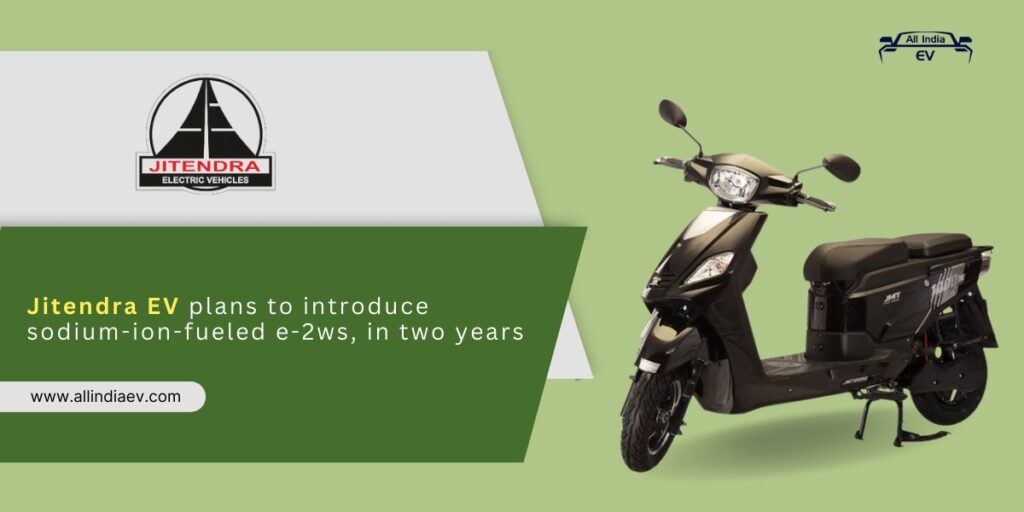
Jitendra EV Plans to Launch Sodium-Ion Battery Electric Two-Wheelers Within Two Years
Jitendra New EV Tech, located in Nashik and focusing on secondary and tertiary markets, plans to debut electric two-wheelers powered by indigenous sodium-ion batteries by the end of calendar year 2025 or the beginning of 2026, co-founder Samkit Shah revealed.
Speaking somewhere during an industry event, Shah noted that several major companies in India are exploring sodium battery technology.
“We are coordinating with them,” he stated. “Towards the end of 2025 or at the start of 2026, we expect to introduce sodium-ion batteries manufactured domestically,” he further explained, noting this will complement the sodium cells currently imported from China.
This initiative is pivotal within the broader context of India’s shift towards electric vehicles. Despite the widespread use of lithium and cobalt in EV batteries, sodium-ion batteries are emerging as a noteworthy alternative within India, thanks to their potential for easier domestic sourcing.
Sodium-ion batteries, which utilize table salt and biomass from the forestry industry as primary raw materials, promise greater accessibility within India. While global advancements in this technology are notably led by Chinese firms, Indian companies are also making significant progress. For instance, KPIT Technologies, based in Pune, showcased its sodium-ion battery technology at a Bengaluru industry event in December.
Addressing the uncertainty surrounding subsidies for electric two-wheelers, Shah remained optimistic about the industry’s growth prospects in India, suggesting that achieving the government’s target of 35-40% market penetration by 2030 might necessitate the extension of current subsidies. “Should the subsidies be discontinued, we might see our target delayed by a year,” he mentioned.
In a move to support the electric vehicle sector, the Ministry of Heavy Industries recently announced the Electric Mobility Promotion Scheme 2024. With a budget of Rs 500 crore, this scheme aims to extend subsidies for electric two- and three-wheelers from April 1 to July 31, following the conclusion of the FAME II scheme on March 31. FAME II, launched in 2019 with a Rs 10,000 crore budget over three years and later extended with an additional Rs 1,500 crore, has supported around 1.47 million electric vehicles, including significant numbers of two- and three-wheelers.
